A senior UK government minister has given a positive reaction to proposals for a new system of farm payments in NI.
Speaking at the Oxford Farming Conference, Environment Secretary George Eustice described the plan for NI agricultural policy as “really interesting thinking”.
The proposals were unveiled by NI Minister for Agriculture Edwin Poots last month and include an area-based resilience payment linked to soil nutrient testing and measuring carbon levels in soils.
There is also a headage payment for suckler cows and beef cattle, plus a new agri-environment scheme.
“I think Edwin has outlined some really interesting thinking, particularly around the role of soils in storing carbon, and around sustainability and resilience. It will be very interesting to see this develop,” Eustice said.
The upbeat response from the Conservative Party MP is welcome as it is ultimately the UK government that will be funding NI schemes.
Eustice pointed out that with agricultural policy being a “devolved matter” in the UK, there is significant scope for each UK region to develop their own system of farm payments.
I can understand that, for instance, NI shares a land border with the Irish Republic, so they may choose to make change more cautiously
“Different parts of the UK will chart slightly different courses and move to change at a slightly different pace.
“I can understand that, for instance, NI shares a land border with the Irish Republic, so they may choose to make change more cautiously,” he said.
A big talking point at the virtual event was the announcement of two schemes in England which aim to restore 300,000ha of natural habitat.
The schemes will incentivise tree planting, re-wetting of peatlands, and so-called “rewilding” where farmland is abandoned for nature to take over.
NI agenda
However, Minister Poots was clear that an incentive scheme for rewilding in NI is not on his agenda.
“We are very focused on farming with the environment, it is not one or the other,” he said during his address at the virtual event.
The DUP politician also dismissed the suggestion that output from the local agri food sector should be reduced to help NI reach greenhouse gas emission targets.
We need to ensure that we can produce food as carbon neutral as possible
He argued that this approach would lead to the UK importing more food from abroad, so global greenhouse gas emissions would not reduce, and less food would be available for people in foreign countries.
“We need to ensure that we can produce food as carbon neutral as possible, but the production of food must continue,” Minister Poots said.
Farmers to be
paid more for
environmental measures
Farmers will need to receive more lucrative payments for environmental measures in the future, Environment Secretary George Eustice told last weeks’ Oxford Farming Conference.
“We have a responsibility as a government to ensure that the payment rates that we make are attractive enough to incentivise the uptake of our schemes on the scale needed to hit the targets that we set ourselves,” he said.
In his address, Eustice announced that payment rates under the existing Countryside Stewardship initiative in England will increase by 30% on average to encourage wider uptake of the scheme.
Looking forward, he promised that payment rates under new agri-environment schemes will be higher than what was available in the past.
“These new payments will not begrudge farmers a margin for doing the right thing for the environment. In that sense, they will represent a departure from the ‘income foregone’ principle that was used by the European Union,” the Conservative MP said.
Climate debate will change trade rules, says US official
A new set of rules is needed on how governments use concerns about greenhouse gas emissions to restrict trade, a senior official from the United States Department of Agriculture (USDA) has said.
I actually care how you produce food if it is produced in a way that emits more greenhouse gases
At present, global trade rules only allow a country to ban food imports from another country if there are concerns about the likes of food safety or the spread of disease.
“Now, I actually care how you produce food if it is produced in a way that emits more greenhouse gases. I think the climate challenge really brings a whole new perspective to how we look at discrimination in a way that we never had before,” said Jason Hafemeister from USDA.
The relationship between trade and greenhouse gases is coming under increased scrutiny, particularly if it leads to carbon leakage.
This is where a country lowers its emissions by reducing domestic production and increasing imports from abroad. If this results in emissions rising in the exporting country, then there is no overall benefit globally.
The EU has taken the first step by introducing proposals for a “carbon border adjustment tax” on imports of certain products.
We see this coming. This is a really critical debat
“We don’t want countries arbitrarily setting these kinds of measures. It’s too tempting to be protectionist. We see this coming. This is a really critical debate,” Hafemeister said.
A senior UK government minister has given a positive reaction to proposals for a new system of farm payments in NI.
Speaking at the Oxford Farming Conference, Environment Secretary George Eustice described the plan for NI agricultural policy as “really interesting thinking”.
The proposals were unveiled by NI Minister for Agriculture Edwin Poots last month and include an area-based resilience payment linked to soil nutrient testing and measuring carbon levels in soils.
There is also a headage payment for suckler cows and beef cattle, plus a new agri-environment scheme.
“I think Edwin has outlined some really interesting thinking, particularly around the role of soils in storing carbon, and around sustainability and resilience. It will be very interesting to see this develop,” Eustice said.
The upbeat response from the Conservative Party MP is welcome as it is ultimately the UK government that will be funding NI schemes.
Eustice pointed out that with agricultural policy being a “devolved matter” in the UK, there is significant scope for each UK region to develop their own system of farm payments.
I can understand that, for instance, NI shares a land border with the Irish Republic, so they may choose to make change more cautiously
“Different parts of the UK will chart slightly different courses and move to change at a slightly different pace.
“I can understand that, for instance, NI shares a land border with the Irish Republic, so they may choose to make change more cautiously,” he said.
A big talking point at the virtual event was the announcement of two schemes in England which aim to restore 300,000ha of natural habitat.
The schemes will incentivise tree planting, re-wetting of peatlands, and so-called “rewilding” where farmland is abandoned for nature to take over.
NI agenda
However, Minister Poots was clear that an incentive scheme for rewilding in NI is not on his agenda.
“We are very focused on farming with the environment, it is not one or the other,” he said during his address at the virtual event.
The DUP politician also dismissed the suggestion that output from the local agri food sector should be reduced to help NI reach greenhouse gas emission targets.
We need to ensure that we can produce food as carbon neutral as possible
He argued that this approach would lead to the UK importing more food from abroad, so global greenhouse gas emissions would not reduce, and less food would be available for people in foreign countries.
“We need to ensure that we can produce food as carbon neutral as possible, but the production of food must continue,” Minister Poots said.
Farmers to be
paid more for
environmental measures
Farmers will need to receive more lucrative payments for environmental measures in the future, Environment Secretary George Eustice told last weeks’ Oxford Farming Conference.
“We have a responsibility as a government to ensure that the payment rates that we make are attractive enough to incentivise the uptake of our schemes on the scale needed to hit the targets that we set ourselves,” he said.
In his address, Eustice announced that payment rates under the existing Countryside Stewardship initiative in England will increase by 30% on average to encourage wider uptake of the scheme.
Looking forward, he promised that payment rates under new agri-environment schemes will be higher than what was available in the past.
“These new payments will not begrudge farmers a margin for doing the right thing for the environment. In that sense, they will represent a departure from the ‘income foregone’ principle that was used by the European Union,” the Conservative MP said.
Climate debate will change trade rules, says US official
A new set of rules is needed on how governments use concerns about greenhouse gas emissions to restrict trade, a senior official from the United States Department of Agriculture (USDA) has said.
I actually care how you produce food if it is produced in a way that emits more greenhouse gases
At present, global trade rules only allow a country to ban food imports from another country if there are concerns about the likes of food safety or the spread of disease.
“Now, I actually care how you produce food if it is produced in a way that emits more greenhouse gases. I think the climate challenge really brings a whole new perspective to how we look at discrimination in a way that we never had before,” said Jason Hafemeister from USDA.
The relationship between trade and greenhouse gases is coming under increased scrutiny, particularly if it leads to carbon leakage.
This is where a country lowers its emissions by reducing domestic production and increasing imports from abroad. If this results in emissions rising in the exporting country, then there is no overall benefit globally.
The EU has taken the first step by introducing proposals for a “carbon border adjustment tax” on imports of certain products.
We see this coming. This is a really critical debat
“We don’t want countries arbitrarily setting these kinds of measures. It’s too tempting to be protectionist. We see this coming. This is a really critical debate,” Hafemeister said.



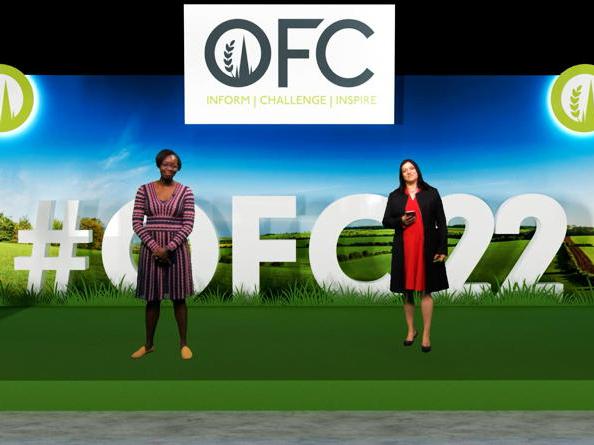

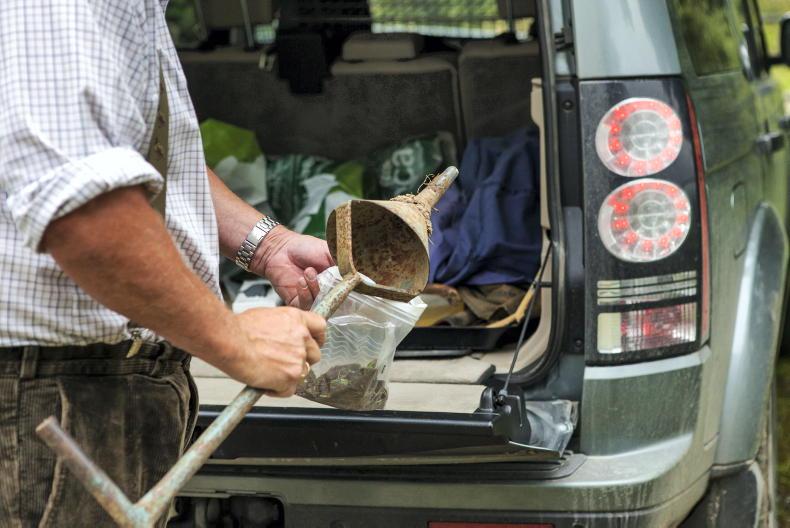
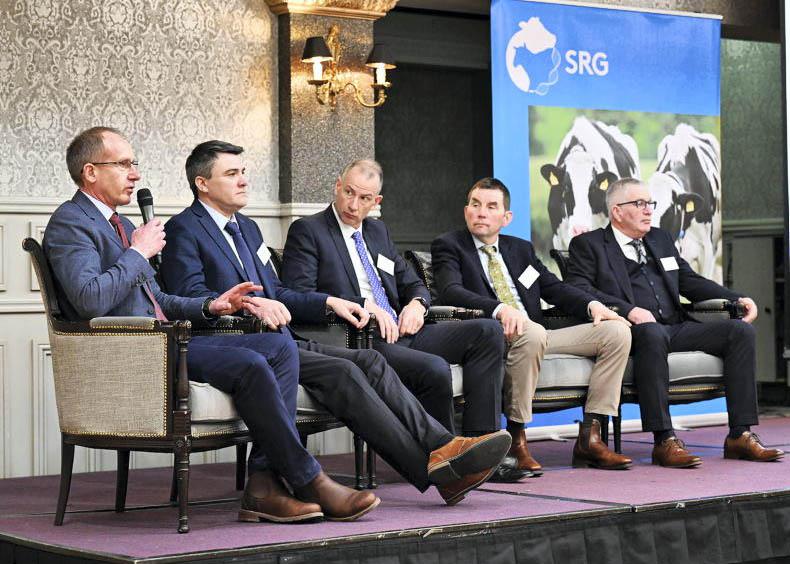
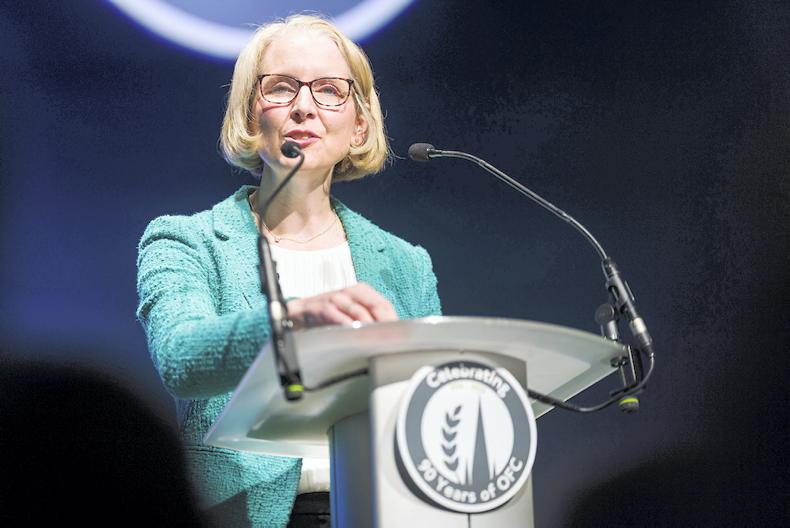
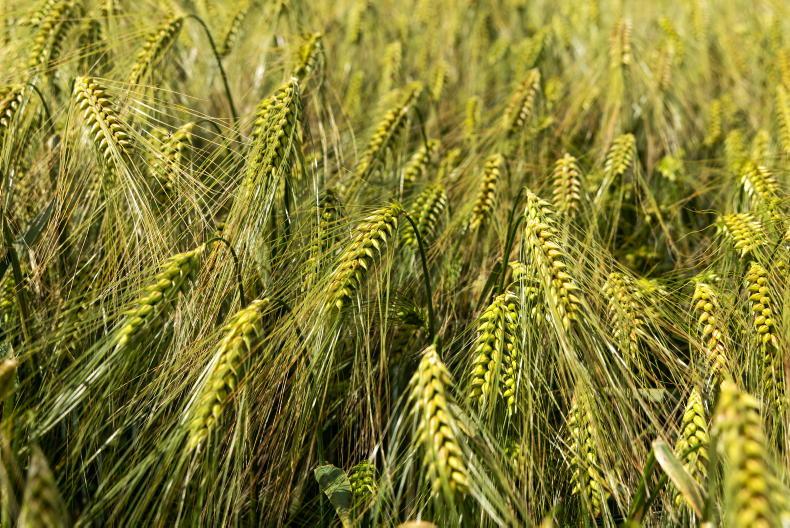
SHARING OPTIONS